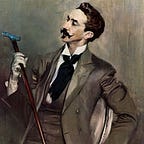Like Any Other? : Annie Ernaux’s A Woman Story
There is something bittersweet about the fact that Annie Ernaux’s most popular book remains A Man’s Place (Fr: La place). On one hand, La place is a brief, austere but still rich account of the life of a man whose life would not be seen as worthy of literary writing. On the other, however, Ernaux has other books that deserve attention for venturing beyond her typical powerful explorations of social class in France, such as La honte (discussing the delicate issue of domestic violence), L’événement (touching on the sensitive experience of the author with abortion) and Une Femme (about her mother’s ordinary life until she developed Alzheimer’s). In Une Femme (A Woman’s Place in the translation by Tanya Leslie), Ernaux insists that even though her mom was a rather ordinary person, she still learned a lot from her. Moreover, it is interesting to see Ernaux try to negotiate her emotions with her knowledge: her mom’s demeanor, often crass and mean, was not just her essence but rather a result of the environment she grew up in. Understanding human beings as a result of sociological phenomena around them, however, does not get rid of painful words exchanged by mother and daughter. In spite of that, Une Femme works as Ernaux’s way to celebrate her mother for what she was: a working-class woman devoted to her family, one somehow like any other and unlike any other in France.
Like La place, Une Femme begins when Ernaux is notified of her mother’s death; unlike her father, her mother passed away in a nursing home without remembrance of her life. This memory loss gives way to Ernaux’s serene reflection on what her life must have been like. If it sounds odd to conduct an ethnography on one’s own parent, one must remember that France — like most of the Western world at the time — evolved radically throughout the twentieth century. Preindustrial lifestyles suddenly became rare and gave way to industrial ones. Just as fast, postindustrialism transformed a once thriving region into one facing uncertainty. When Ernaux’s working-class mother was young, she had to choose between a limited number of jobs. Choosing a factory job guaranteed some stable income, but was not seen favorably by townspeople who were still skeptical of women working outside the domestic sphere. Another important consideration was who to marry: while in the mid-twentieth century Ernaux could choose any suitor based on her own feelings, her mom in the earlier part of the century had many things to consider: she wanted a partner who could assure good living conditions and who was not dealing with alcoholism. She found one with whom she eventually built a village grocery shop and raised a daughter.
This woman’s story is not as simple as this commonplace life trajectory might suggest, however. Ernaux contrasts good memories with bad ones. Her mom took her to museums and tea shops but also was overly vigilant of how she dressed and who she befriended. An interesting discussion of the evolution of sexuality ensues: for her mom, chastity was of utmost importance. For Ernaux and her generation, the tides were waving in another direction. Feminist ideas spread and clashed with belief systems her mother held dear.
After her father’s death, Ernaux’s mom kept working at the grocery shop and living a quiet life in her small town. Eventually she moved in with her daughter’s family (Ernaux, her husband, and their two children) to the larger town of Annecy in Eastern France. She struggled to adapt to her new life at first, but eventually came to enjoy spending time with her grandchildren and taking strolls around town. After Ernaux’s family resettled in a suburb north of Paris that lacked many of the amenities of Annecy, her mom decided to go back to her small town. She aged gradually and one day Ernaux realized she had developed Alzheimer’s and required special care. Although she visited her often, she realized that her mother was simply not the person she used to be.
French writer Édouard Louis once commented that he felt as if his life was but a series of different characters performing different tasks according to specific contexts. This idea applies to Une Femme as well: the little girl in a Normandy town, the teenager working at a factory, the young woman sheltering her infant child from bombings during World War II, the middle-aged woman gossiping around the village as if she served men coffee — it is difficult to believe these are all the same person. Ernaux offers a solution through sociology, however. What unites all of these characters and makes them into one woman is how much society shaped everything she did. This message remains highly relevant as liberal narratives of individualism and accountability continue to affect how we perceive others in everyday life.
